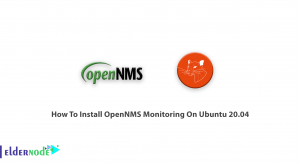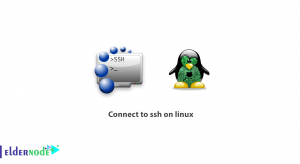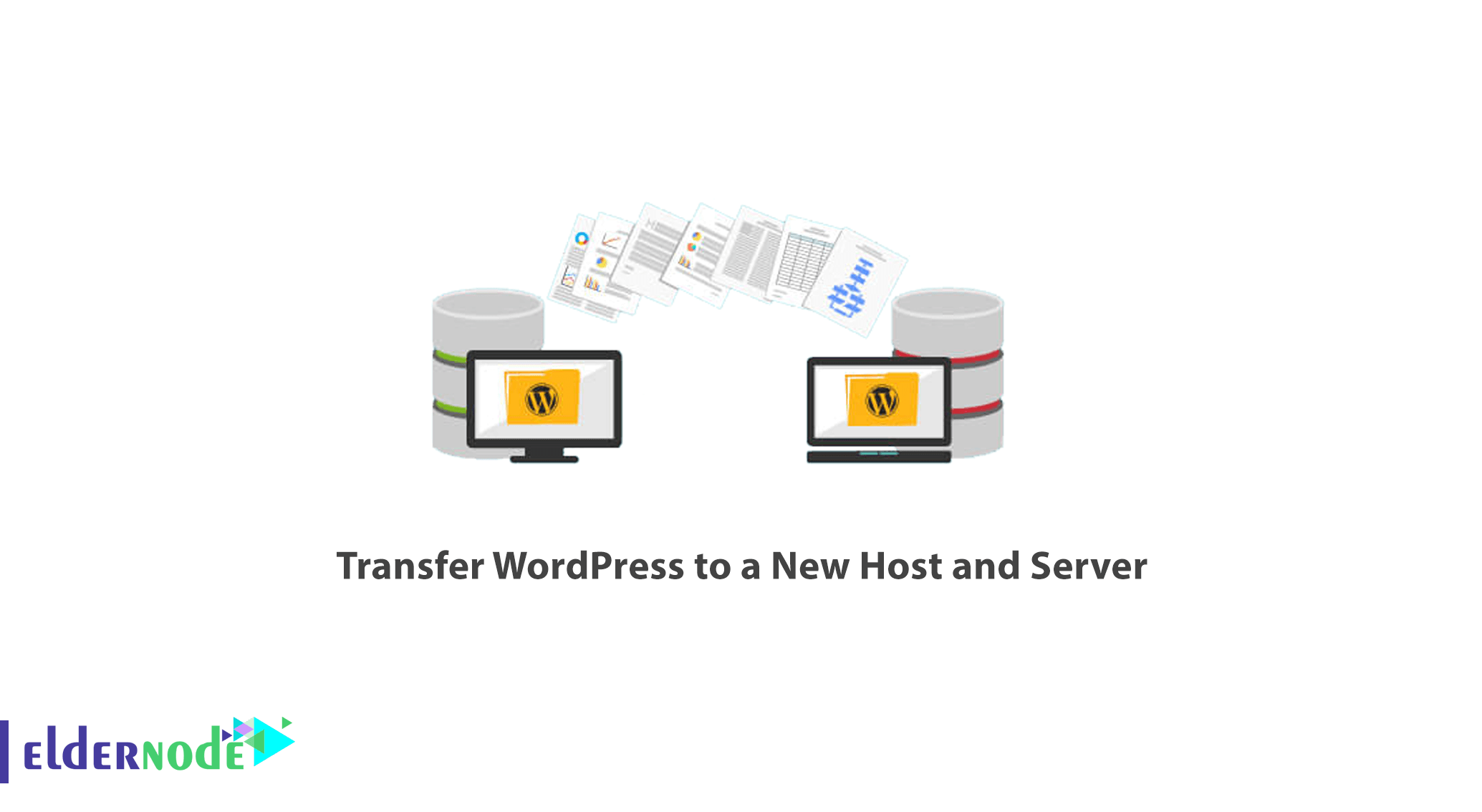
How to Transfer WordPress to a New Host and Server; The biggest risk in moving WordPress to a new server is data loss or possible downtime. In this tutorial, Eldernode will show you step by step how to move your WordPress website to a new host without experiencing downtime.
Table of Contents
Step One: Choose your new WordPress website host
When looking for a new WordPress host, you should carefully make this critical choice. Because if you make the wrong choice, you’ll still have to move WordPress to a new host.
After purchasing a new host, your host account should be free of any files and folders in the main directory.
Step Two: Install Duplicator for easy WordPress transfer
The first thing to do is install and activate the free Duplicator plugin on the website you want to transfer.
Duplicator is a free plugin that we highly recommend. This plugin can also transfer your site to another domain without worrying about reducing SEO rank.
However, in this tutorial, we will talk about how to move your site to another host without downtime.
After you have installed and activated the Duplicator plugin, go to the “Duplicator >> packages” section of the WordPress admin dashboard. Then click on the “Create New” option in the upper right corner of the page.
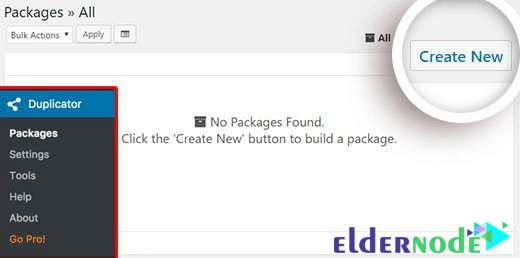
After that, click “Next” and continue the steps to make your package.
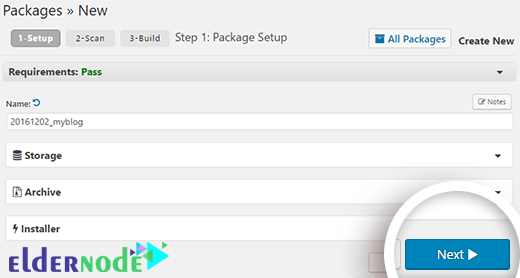
Make sure all your scan results are done correctly and that everything is in Good condition, then click the “Build” button. This process may take a few minutes, so do not close the tab to complete the process.
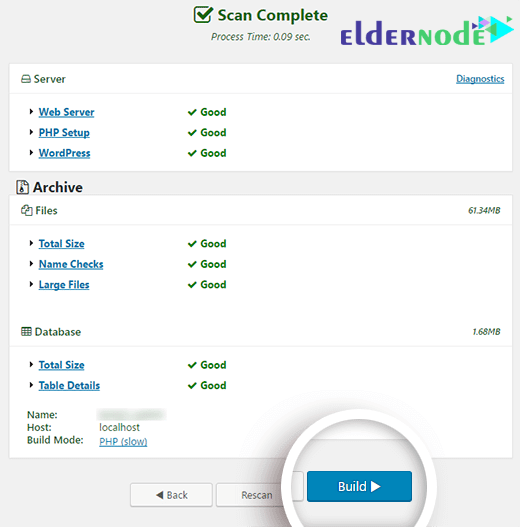
After the process is completed, you must click on both the “Installer” and “Archive” buttons to download both files. Remember that you need both files.
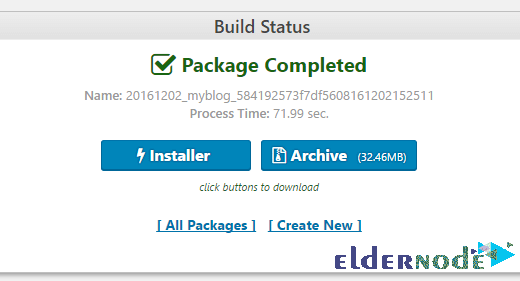
The “archive” file is a copy of your site and the “installer” file will perform the installation process for you automatically.
Step 3: Import your WordPress site to the new host
Now that you have downloaded both archive and installer files, the next step is to upload these two files to your new host. You can do this using FTP.
Upload both “installer.php” and “archive.php” to your website’s root directory using your FTP client or file manager. This directory on the hosts is usually: / username / public_html / or /username/public_html/example.com which as you know example.com will be your domain name.
If you are unsure about finding a root directory, ask about your hosting. Also, make sure this directory is completely empty and there are no files in it. If you already have the default files or even WordPress installed, be sure to delete them.
Step Four: Modify Host Files to Prevent Downtime
After you’ve uploaded the files to your new host, you’ll need to access the installer.php file from your browser. This file is accessible through the opposite URL: http://www.example.com/installer.php
If you get a new domain and your host is set up, it will run easily on the installation page and you should move on to the next step.
But if you want to connect your previous domain with another host now set to this host, this address will lead you to a 404 error page. Because your domain is still pointing to the previous host.
Host files map the domain name to a specific IP address.
In this step, we will show you how to write a new row in these files to move the domain to the new IP host. However, only when requests are sent from your computer.
By making these changes, you can access the new host through your domain.
Other users will continue to be redirected to your old host. This guarantees 100% uptime.
The first thing to do is to get your new hosting IP address.
To find it, go to your “cPanel dashboard” and click on “expand stats” in the left sidebar. You will see information about the status of your server.
The information you need is specified as “Shared IP Address“.
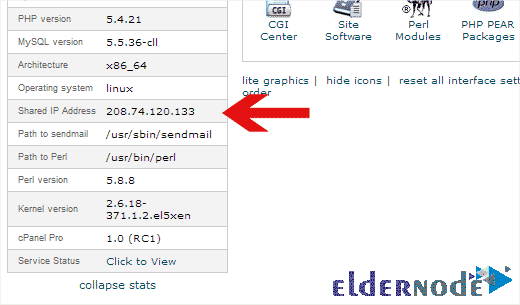
Next, Windows users should go to Programs >> All Programs >> Accessories. Then right-click on Notepad and select “Run as Administrator“.
Wait for the UAC to request permission to run it. Then, by clicking Yes, the Notepad software will run with Administrator access.
On the Notepad page, go to the File >> Open tab and go to C:\Windows\System32\drivers\etc. Select the hosts file and open it.
Mac users should also open their Terminal app and run the following command to change the hosts file:
sudo nano /private/etc/hosts
For both Windows and Mac users, at the bottom of the hosts file, they should enter the IP address they copied along with their site domain as follows:
192.168.1.22 www.example.com
Save the changes and you can now access your files on the new host using your site’s domain name.
Important: Don’t forget to uninstall these changes after the WordPress site transfer operation is complete and clear the last row.
How to Transfer WordPress to a New Host and Server
Step 5: Start the WordPress Transfer Process with Duplicator
Now we are ready to run the “installer“. Go to the following address in your browser and replace example.com with your domain name.
http://www.example.com/installer.php
If you’ve never built a database for your new host, it’s time to build a database in cPanel.
After you create the database, you must enter the database information in the fields below, and then click the “Test Connection” button to test the connection.
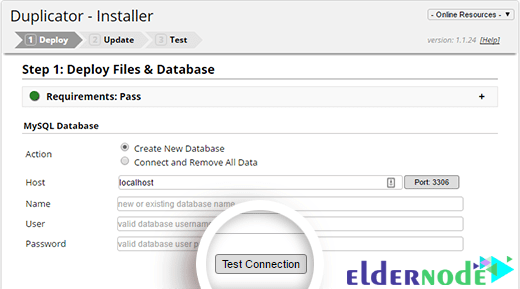
After you have successfully connected to the database, scroll down to the bottom of the page and read the Warnings and notices section. Then check the checkbox “I have read all the warnings & notices” and click on the “Run Deployment” button.

Here the installer starts importing your database. This may take some time, so allow the tab to remain active.
In step 2 of the installer script, you will be asked to confirm your old and new URL paths.
Once you are sure this information is correct, click “Run Update” to update the URLs.
Lastly, you can finish the transfer process by clicking on the specified buttons in order and testing that everything is working correctly.
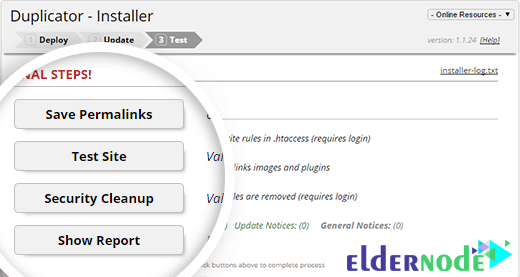
Important: You can now undo the changes you made in step four.
Step six: Update your domain
You need to change your “DNS nameservers” to update your domain. This will ensure that your users will be redirected to your new hosting account when you enter your domain name.
To do this, go to your previous hosting account or domain registrar site and go to your domain settings.
There, clear the nameservers fields and replace them with new hosts nameservers. You can also find new host nameservers through the cPanel dashboard.
If you are having trouble, ask your new hosting provider about the nameservers to provide these two links. These addresses are usually as follows:
ns1.hostname.com
ns2.hostname.com
After successfully updating the nameservers, you will need to wait between 4 and 48 hours for these changes to apply to all users’ DNS.
How to Transfer WordPress to a New Host and Server;
Goodluck.

